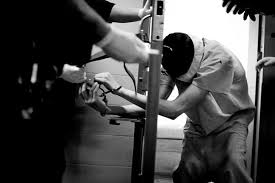
WESTERN SKYSCRAPERS COMPETE WITH STALIN’S “GIFT”
Do Europeans look at mental illnesses differently from us?
I’m posing this question because last week I was in Warsaw, Poland, delivering a speech to an international group. Its members seemed genuinely surprised when I told them my personal story about how I was turned away from a hospital emergency room when I took my son, who was psychotic, there for help. The audience appeared even more shocked when I said there were 360,000 persons in the U.S. with severe mental disorders currently incarcerated in U.S. jails and prisons. When I also mentioned that the largest public mental facility in the U.S. is a jail and that the chances of a individual in the midst of a mental break ending up in a hospital versus a jail are three-to-one in favor of a jail — well, let me just say that I saw lots of jaw dropping.
Before I continue writing about mental health, however, I have to digress.







